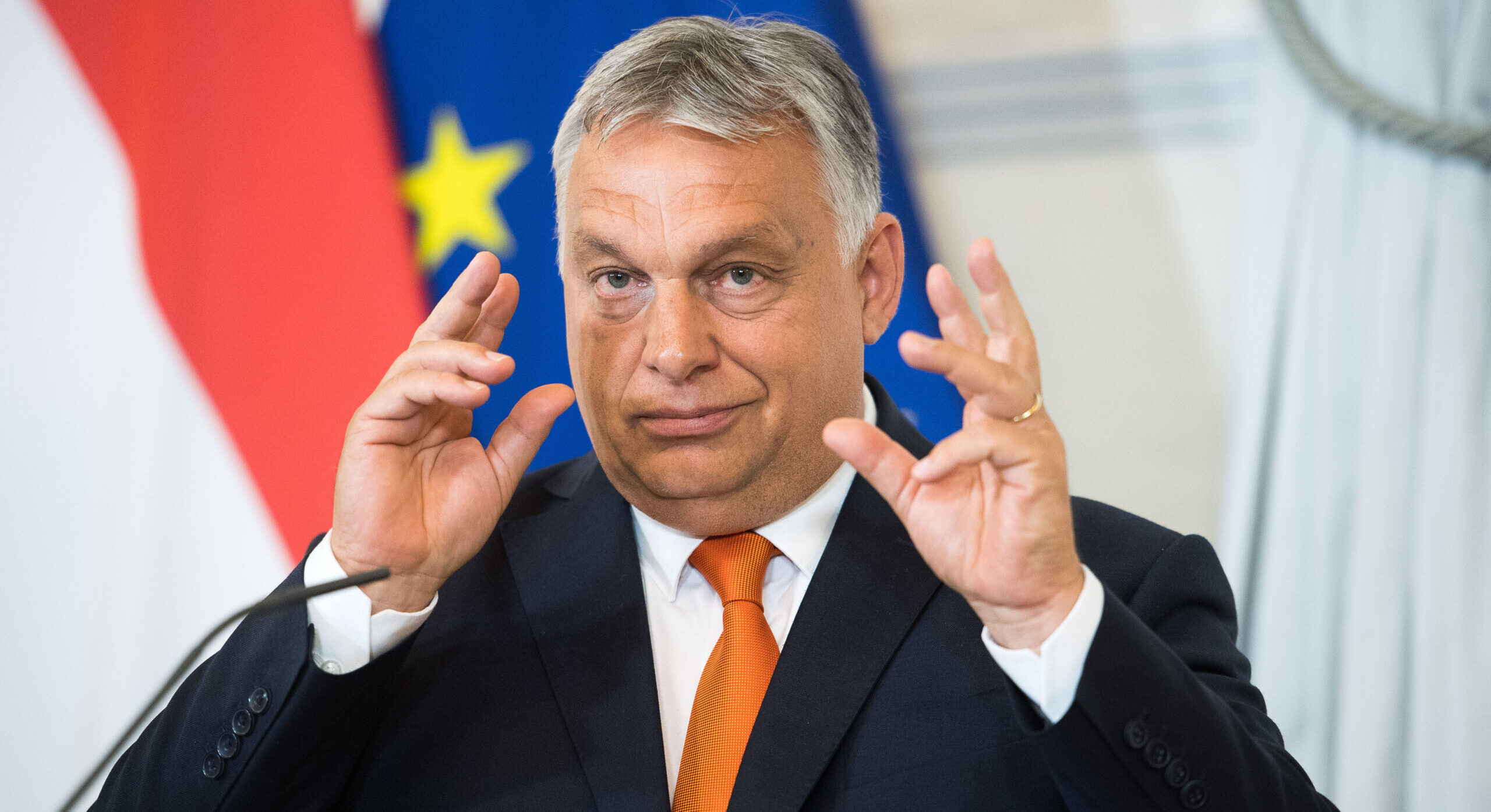In an interview with Hungarian radio on Friday, Viktor Orbán made the incendiary claim that European leaders are coming nearer to discussing “sending some kind of peacekeeping force to the front” in Ukraine, saying that “we are close to this border that previously seemed impassable.” A claim of this magnitude deserves serious scrutiny, given that there has not yet been a major public discussion of sending peacekeepers in either the EU or NATO.
Moscow is certainly treating Orbán’s statement seriously. Kremlin spokesman Dmitry Peskov said the deployment of Western peacekeeping troops in Ukraine would be “extremely dangerous”, seeing as, to perform a neutral role, they would need to be deployed with the consent of both warring parties.
Former Russian president and current deputy chairman of the Security Council Dmitry Medvedev reacted more harshly still. In a profanity-laden Telegram post, he said NATO peacekeepers would “enter the conflict on the side of our enemies” and that they would “unleash the third world war”, being a “legitimate target” for the Russian armed forces. He concluded by asking whether Europe is “ready for a long line of coffins of its ‘peacekeepers’”.
As the Institute for the Study of War observes, “there are no indications outside Orbán’s comments that Western officials are seriously discussing such a proposal.” A call from Poland for a NATO peacekeeping mission in the early weeks of the war previously met with scepticism, including from Ukrainian President Volodymyr Zelenskyy. It is, of course, difficult for us to know the truth of Orbán‘s claims about the tenor of private conversations among fellow EU leaders.
Orbán claimed that while “the people of Europe have moved in the direction of peace,” European leaders are not changing their opinion about the war and that “if this continues, we could end up in World War Three.” He said that such warnings may seem “exaggerated”, but “where I work, seeing these events, it’s a real danger.” While the EU was originally created to preserve peace in Europe, Orbán says it now has a “pro-war institutional system”.
His radio interview was part of a weekly series intended primarily for a Hungarian audience. Warnings about Western escalation may sound like Russian propaganda to onlookers in Britain, but they chime with a majority view in Hungarian society that becoming embroiled in foreign wars only increases the chances of global conflagration. It’s a moot point whether the Orbán government has actively shaped this view or whether its policies follow a pre-existing social consensus.
It also can’t be discounted that Orbán’s comments were intended partly for Russian consumption. They clearly resonated with Kremlin propagandists, and recent weeks have given Budapest cause to worry about its valued pragmatic relations with Moscow. The Hungarian government has had to deny speculation that it is considering backing away from Russian cooperation for crucial nuclear energy developments, while the Kremlin last week took the surprising decision to put Hungary on its list of “unfriendly nations”.
Finally, we must allow for the possibility that Orbán meant every word he said about peacekeepers, given the dwindling regard for previous red lines among Ukraine’s supporters. One thing can’t be denied — as things stand, there seems to be little prospect of change in Western leaders’ appetite for ever-increasing support for Kyiv’s war effort, regardless of its popularity among their own voters.










Join the discussion
Join like minded readers that support our journalism by becoming a paid subscriber
To join the discussion in the comments, become a paid subscriber.
Join like minded readers that support our journalism, read unlimited articles and enjoy other subscriber-only benefits.
Subscribe